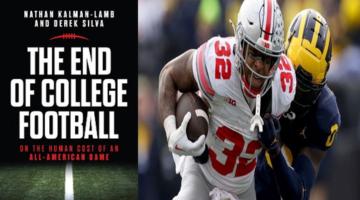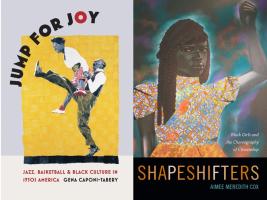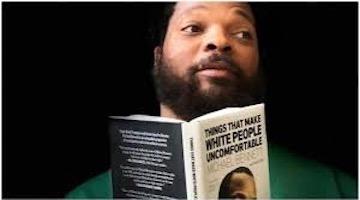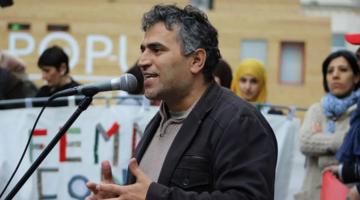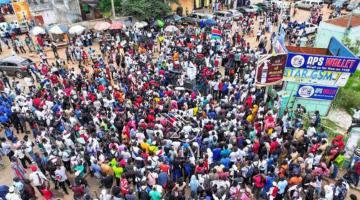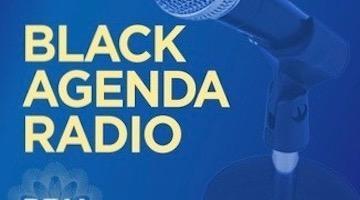“Racists don’t give up easily, we learned, and the racists in sports are especially dedicated.”
If there are any Black Agenda Report readers who are fans of soccer—or what the world outside of North America refers to as “football” because it is played with one's feet— you may have watched perhaps the most bloated and corrupt spectacle the sport has ever seen: the Club World Cup. The brainchild of FIFA, soccer’s world governing body, and its cartoonish, narcissistic supervillain president, Gianni Infantino, the Club World Cup brought 32 club teams from the top professional leagues across the planet to the United States for a month-long tournament.
The results were mixed. Some said the stadiums were half full, others said they were half empty, while most games were played in unbearably sweltering conditions, punishing both fans and athletes alike. As for the actual soccer, some of the games were quite good but, more importantly, the money was great: the prize pot was an astonishing one billion dollars, much of which FIFA recouped through selling the broadcast rights to sports streaming and entertainment platform DAZN for an equal amount. Over all, the real victors of the Club World Cup were the grotesquely wealthy private equity firms, sovereign wealth funds, and petro-states who now own the “people’s game” and use it for global money laundering, tax evasion, and soft-power diplomacy.
The other victor was the United States. While the Club World Cup probably did little to grow the sport in the notoriously anti-soccer country, it did serve as a useful training run for the upcoming 2026 FIFA World Cup (staged jointly with Canada and Mexico) and the 2028 Los Angeles Olympics. Despite racist ICE raids, mass detentions and deportations, increasingly repressive border security, a pointless tariff war, unprovoked attacks on Iran, and an ongoing US-backed genocide in Gaza, the Club World Cup operated smoothly – and, importantly, without major protest.
Meanwhile, US President Donald Trump, the spray-tanned Fuhrer, inserted himself into the Club World Cup proceedings. During an Oval Office presentation of the new Tiffany-designed Club World Cup trophy —as golden and gaudy as a Mar a Lago bathroom —he decided he would keep it for himself. Roundly booed and cursed during the tournament finale (which itself became a Super Bowl like spectacle of USA patriotism including flyovers, a marching band, and a terrible performance from Coldplay), Trump celebrated with the victorious Chelsea players as if he had not only won the Club World Cup as an athlete, but organized the entire event. To crown it off, Trump offered to put forward an executive order decreeing that in the United States soccer be called football.
All of it appeared clownish and stupid, displaying a typical mawkish buffoonery. But it also dangerously obscured the fact that the Club World Cup—like the-up coming World Cup and the Olympics—will be used to simultaneously cover-up and celebrate fascism. It is no wonder that there were conversations about boycotting the Club World Cup (conversations that were not merely limited to the hardcore fanatics who wanted to preserve the purity of the game) and there is a small but growing discussion about boycotting the World Cup and the Olympics.
While the Club World Cup should be studied as an example of how protest was muted and repression enabled, it is also worth looking back at the strategy of prior examples of athletic boycotts. For this, we should read sociologist and activist Harry Edwards’ essential study of racism, money, and sport, The Revolt of the Black Athlete, first published in 1968. Edwards was the principal architect of The Olympic Project for Human Rights, the organizer of the ban of Apartheid South Africa from international sporting events, and of the Black protests at the 1968 Mexico City Olympics.
In a 1969 essay in Ramparts Magazine titled “After the Olympics: Buying off Protest,” Edwards reflected on the success of the athletic boycotts—and the backlash against them, especially through the buying off and selling out of Black athletes. If a future boycott will be in any way successful, we should study Edwards’ example and learn from his words. We reprint Edwards’ “After the Olympics: Buying off Protest” below.
After the Olympics: Buying off Protest
Harry Edwards
Last year must have seemed like a long nightmare for members of America’s white sports establishment. They acted as if the system of athletic slavery over which they were presiding would last forever. They were as unprepared for the revolt of the black athletes as the Virginians had been for Nat Turner.
At some points it must have seemed that the athletic scene — traditionally the most stable of status quos—would never return to normal. A major college football game between San Jose State College and the University of Texas at El Paso was canceled because of threatened demonstrations by blacks. Black athletes on campuses all over the country suddenly stopped worrying about pleasing white audiences, coaches and athletic directors, and started thinking about the position of their people in America and the way they themselves were being used. Even conservative publication like Sports Illustrated started doing exposes on the predicament of the black athlete: how he was called “nigger” by coaches and “boy” by spectators, how he wound up used and empty. It became clear that sports was an arena for the black liberation struggle, and there was no turning away from the vision of racism that got if you looked at sports up close.
As part of this general movement in athletics, the Olympic Project for Human Rights, which advocated a boycott of the Mexico City Olympics, was organized by myself, Ken Noel, and others at San Jose State College, where I was teaching at the time. Looking back on it a year later, I feel that the boycott may have fallen short of its goals and left many things undone. But still it was a success, especially given the incredibly reactionary context in which it took place. We helped unify black athletes all over the nation who were independently coming to realizations of their own about racism — in sports and in general. We also carried the message to some people who hadn’t gotten it yet. As a result, a whole new generation — people like Lew Alcindor [Kareem Abdul-Jabbar], Tommie Smith and John Carlos — became important spokesmen for black people throughout the country. We led a successful boycott against the racist New York Athletic Club’s 100th Annual Indoor Track Meet at Madison Square Garden. In conjunction with the black African nations, we helped to get South Africa suspended from the Olympic Games. And of course, two courageous black athletes, John Carlos and Tommie Smith, raised their gloved fists in protest on the Olympic victory stand while the American national anthem played in the background and the whole world watched.
These accomplishments, small as they were in comparison to the problems they sought to correct, were made under the most trying of circumstances. Death threats to myself and my staff were an almost daily occurrence. One morning last spring, I woke up to find that my two dogs had been shot, sliced up and dumped on my front porch. At various times during the boycott movement, I was offered sums amounting to over $125,000 to call the whole thing off — the assumption being that I was one of those rare niggers with brains and that without me the whole protest would vanish. The pressure was always on, and it continued right into Mexico City. Mel Pender, a captain in the Army and a black sprinter on the American team, was threatened with a possible court-martial if he got involved in any protests. Other blacks were constantly harassed and coerced. Racists don’t give up easily, we learned, and the racists in sports are especially dedicated.
By the time the Olympic Games were over, we had ample evidence that the American sports establishment was going to fight our protest against racism in athletics with every weapon available to it. It would not even stop short of using black people themselves, as has become clear in the activities of “Pappy” Gault, which are detailed in the article that follows. Gault was only one of many who tried to destroy the Olympic Project for Human Rights at Mexico City. He probably wouldn’t be worth mentioning at all, except that he has spent his time since the Olympics trying to buy off the growing militancy among black athletes. Working in concert with representatives of the power structure in America, Gault has tried to make sure nothing like Mexico City happens again.
I first became aware of what Pappy Gault was doing when I heard rumors that he had been showing up at all the big invitational track meets and offering money to certain outspoken black athletes. Then, last month, Lee Evans came to me and said that Gault had approached him and Tommie Smith with a proposition. It happened at the Martin Luther King Memorial Games; Gault told Evans and Smith that he would see that they made $2000 apiece over the next couple of months if they would allow him to act as their representative. As one of the athletes most involved in last year’s boycott movement, Lee was naturally upset, and I was too. I became even more concerned when I found out that Sheila Young—a reporter for Newsweek magazine who had interviewed Gault at the school he works for in Maryland—said that Gault had told her she’d “wind up in the Hudson River” if her magazine ever printed anything damaging about his activities.
In a sense, one could have predicted Pappy Gault — or at least someone like him. For what he is doing is simply a part of the strategy of black capitalism now favored by the establishment: buying off the most vocal elements of black militancy, but doing nothing about the causes of discontent. But what couldn’t have been predicted is the arrogance of the man and of the amateur athletics hierarchy he represents. It is hard to believe that they could think sports could be returned to the status quo that prevailed until last year. They should have known that too much has gone down for that, and they should know that there is a whole lot more to come.
One of the things that we of the Olympic Project for Human Rights tried to show last year was that athletics, whatever its Grecian ideals, is not partisan or apolitical. This has been accepted now. It would be hard to find anyone knowledgeable in the world of sports who wouldn’t admit that athletics is very political indeed. But his realization has only led the establishment to use everything at its command — money, power, influence — to indicate the kind of politics that is acceptable in sports, namely their kind of politics, a politics of silence and submission. We never did have their money, power or influence. But we have had something they don’t have: human beings with conviction. And if they want to play politics, then we’ll be there too — eat the Munich Olympics in 1972 and wherever else it counts.
Harry Edwards, “After the Olympics: Buying Off Protest," Ramparts Magazine 8 (November 1969), 16-21.

